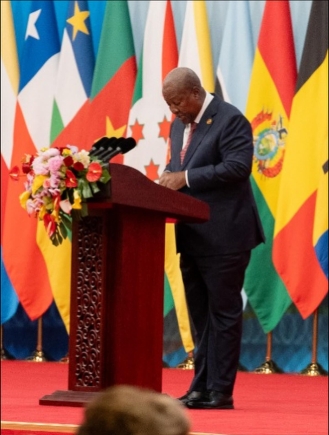John Mahama’s First Presidency and the Quest for Redemption is a book I just published to reflect on our current President’s first time in office. Intrigued by his political trajectory, which culminated in becoming President, first after the passing of Prof. J. E. A. Mills, and second after winning the 2012 election, the book explores two main themes.
First, the difficulties faced and the dissatisfaction of Ghanaians as captured by Afrobarometer Round Six (2014). Second, is his loss in the 2016 election and the decision to contest two more presidential elections in what I believe was a quest for redemption.
First presidency
The first presidency got off to a very challenging start.
The results of the election that saw him elected were rejected by the main opposition New Patriotic Party (NPP).
For the first time in our Fourth Republic, the legitimacy of an election outcome had to be determined by the Supreme Court. I found something odd about our constitutional process.
The dispute and the pending litigation did not put his swearing-in on hold. I often wondered what would happen should the court declare the opposition candidate as the one who won the election?
The nation sat on tentacles as the court case took eight months to adjudicate.
In the end, it ruled that President Mahama was the legitimate winner of the 2012 election. In my interviews with him back in August 2022, I asked whether it affected the early days of his presidency.
His answer was an emphatic yes as he felt there was a “wait and see” posture of those ready to invest in the Ghanaian economy for example.
Challenges
The live telecasting of the court proceedings exposed some challenges with our electoral process, and I believe it created lingering doubts about how clean that election was.
As a matter of fact, in Afrobarometer Round 6 (2014), when asked how free and fair the 2012 election was, only 26 per cent of Ghanaians rated it as “completely free and fair.”
Following these lingering doubts of the election that got him elected came two additional challenges – a) the economy which saw Ghana return to the International Monetary Fund (IMF) for a bailout; and b) a crippling power crisis in what became known locally as “dumsor.”
There were corruption scandals that also rocked the administration.
The Afrobarometer Round 6 (2014) survey results, plus the Occupy Flag Staff House demonstration on July 1, 2014, as well as a re-energised NPP, was all it took to see the impending “doom” of John Mahama’s first presidency.
What is not very well known is that public perception of the Mahama administration improved, but not fast enough and to a level where it could have saved his first presidency.
For example, his approval rating looked like this: 37 per cent (Afrobarometer Round 6, 2014); 48 per cent (CDD-Ghana Pre-Election Survey, July 2016); and 53 per cent (CDD-Ghana Pre-Election Survey, October 2016).
As the President himself admitted during our interview, “the recovery came too late.”
And with that came the end of a presidency, faced with difficulties and unable to resolve them satisfactorily in time to get a renewed mandate for a second term from the Ghanaian people.
Search for redemption
There is a reason I subtitle the book as a search for redemption.
I believe the public will have a better appreciation of it once they read the book.
In summary, though, I believe at the core of the decision to contest the 2020 and 2024 elections was a desire to correct the narrative that led to his defeat in the 2016 elections.
The public perception data I examined prior to the 2020 election, especially the CDD-Ghana pre-election survey in October 2020, pointed to a political landscape that would have made it very difficult for any challenger to unseat the incumbent president.
Yes, his vote share increased when the 2016 results are compared to the 2020 results, but I will argue that the political landscape had not shifted significantly enough for him to win that election.
The year 2024 was, however, different.
The political landscape had shifted significantly, and the signs were clear that the incumbent was likely to lose the election.
Afrobarometer Round 9 (2022) and Round 10 (2024) pointed to high levels of dissatisfaction with government performance in addition to increasing perceptions of institutional corruption.
Between the 2020 and the 2024 elections, the latter was Mahama’s best shot at ensuring a return to the presidency.
Redeemed?
The result of the 2024 election was indeed a very resounding victory.
At this juncture, one may ask - has redemption come for President Mahama with his return to the presidency?
Or is his return to the presidency the first step towards redemption?
That is the last question I wrestle with in the book.
The writer is the Project Director, Democracy Project

